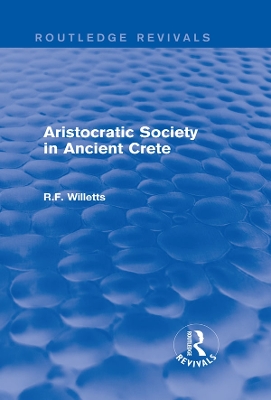Routledge Revivals
2 total works
Aristocratic Society in Ancient Crete (Routledge Revivals)
by R.F. Willetts
Aristocratic Society in Ancient Crete, first published in 1955, investigates the emergence and progress of Dorian society on Crete from the 8th century BC onwards. The major contribution of Cretan culture in this period was in the field of law - law and order are traditionally linked, and Dorian Crete remained steadfast in its pursuit of order. The author offers an explanation for the protracted aristocratic character of Cretan society, basing his study on the crucial Code of Gortyna.
The primitive foundations of the social system are examined, illuminating the tribal institutions which formed the basis of the aristocratic states which developed. The four classes of the Cretan states, and the mutual relations of these classes, are defined, and the stages whereby family institutions developed are analysed. Finally, political and judicial organisation is scrutinised, and the Cretan culture is situated in the wider horizon of Mediterranean civilisation.
Cretan Cults and Festivals, first published in 1962, contains a lengthy treatment of religious practices on Crete and acts as a supplement to the author's previous account of the socio-political institutions of Cretan aristocracies. The religious traditions of the island are investigated in light of the progress of Cretan political and economic practice: in particular, attention is given to the social needs which the cults and the festivals were intended to satisfy or represent.
This work will be of value to students of Ancient Greek religion, those interested in the relationship between religious conceptions and cultic practise, and the links between societal and religious development.

